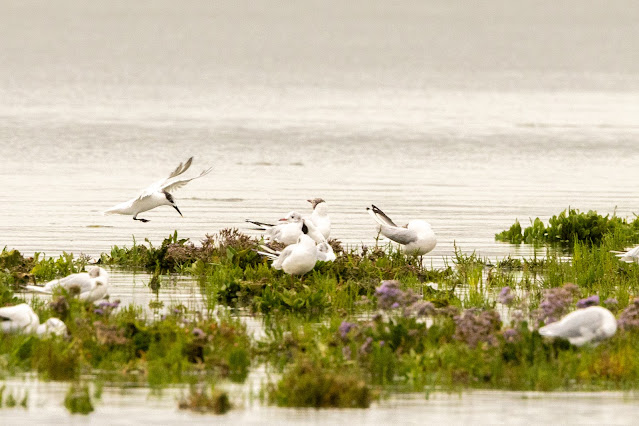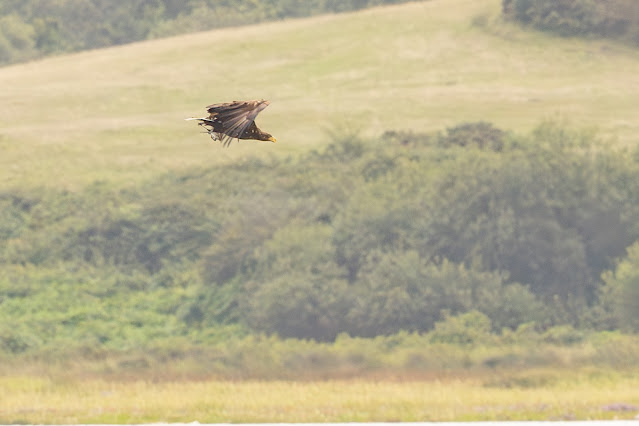This year has been very thin for lifers. I've got one (white-crowned sparrow) and gone for and missed one (black-winged kite) but otherwise i've been away or not had the chance to add to my UK life list, currently at 407. So when the chance came I decided I ought to get out and go for one. The bird in question was a Forsters tern which should be in the USA where I have seen them before. I should caveat this though with the fact that this bird has been around the south-west for a couple of months, commuting between Brownsea Island and other spots mainly around Poole harbour. My excuse for not going has been that it had been very difficult to pin down. Now though it had developed a routine of being seen in the gull and tern roost at Arne on the edge of Poole harbour. A very early start had me at the reserve at 6.15 and after very quick coffee and an even quicker walk I got to Shipstal beach to check out the roosting birds.
The morning wasn't exactly sun sparking off the water and a rather cold wind was keeping the gulls heads down. I got my 'scope set up and started scanning from left to right. Now sometimes you can go through a flock of birds multiple times to work out the location, or not, of your target. Sometimes luck is on your side and the first bird I looked at was interesting. Tern, tick. Smallish size, tick. No black crown, tick. Piratical patch over its eye, tick. Within a minute of scanning I had the bird.It was clearly not popular with local birds including a pair of oystercatchers who harried it away from their territory.
It's pretty hard to tell but it seems to be a godwit going on the beak length and there were certainly a lot of them around. The eagle took it over to a nearby island, much to the consternation of the local shelducks, and we could see it starting to rip the bird apart. No more than a snack for a bird this size but a good bit of opportunism in its part.
About 10 minutes later after presumably finishing its meal it flapped off lazily towards the woods. With the rain setting in I decided enough was enough and packed up my gear and headed back to the car. Not a bad day at all. A lifer giving itself up very easily and a brilliant bit of interaction. Good craic from the birders on site added to the day which was rounded off with a quick trip to Portland bill to year tick yellow-legged gull, Balearic shearwater and arctic skua so all in all very satisfactory. With Autumn migration not far away lets hope it presages some more rarities coming in.


















